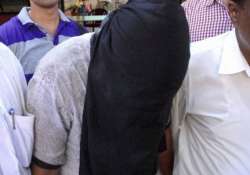Parliamentary committee rejects government proposal to try juveniles as adults
New Delhi: A parliamentary committee on Wednesday rejected the government's proposal to try juveniles between 16 and 18 years involved in heinous cases such as rape as adults. The committee said the move is "in

New Delhi: A parliamentary committee on Wednesday rejected the government's proposal to try juveniles between 16 and 18 years involved in heinous cases such as rape as adults. The committee said the move is "in conflict with law" and should be "reviewed".
"The move is in conflict with law and should be reviewed," said a parliamentary panel report. Giving its observation on the Juvenile Justice (Care and Protection of Children) Bill, 2014, the Parliamentary Standing Committee on HRD said children below 18 years are amenable and should be treated in the same manner and "differential treatment" for children above 16 years of age "should not arise".
There had been a series of cases, including the Nirbhaya gang-rape, Shakti Mills rape case and others, where juveniles were involved and got away with a maximum of three years in a reformatory home. The amendments to the Juvenile Justice act were proposed by the then UPA government in view of the public outrage after the Nirbhaya gang-rape in December 2012.
In their arguments, WCD ministry officials said the National Crime Records Bureau (NCRB) data revealed that the number of children apprehended for heinous crimes, especially in the age group of 16-18 years, had gone up significantly in the recent times. From 531 murders in 2002, the figure had gone up to 1,007 in 2013 while for rape and assault crime recorded was up from 485 to 1,884 during the same period.
The report of the committee comprising JP Nadda and Satyanarayan Jatiya was submitted in Parliament on Wednesday. The comprehensive bill to tackle increasing crimes committed by youngsters aged between 16-18 years like the Delhi gangrapes case and to ensure proper care and protection of needy children was introduced in Lok Sabha in August, 2014.
The report also rejected clause 7 of the JJ bill that allows for a person who was a juvenile on the date of offence to be dealt with under the criminal justice system if arrested on completion of 21 years of age.
The ministry also took exception to the fact that according to the amendments, the Juvenile Justice Board (JJB) is expected to conduct a preliminary enquiry within one month in respect of heinous offences committed by children above 16 years regarding their mental and physical capacity and understanding of consequences, etc. and pass orders under section 19 including, transferring the child for trial by children's court or the sessions court. This, the panel said, was too short a time to judge the accused and the amendment assumed a presumption of guilty.